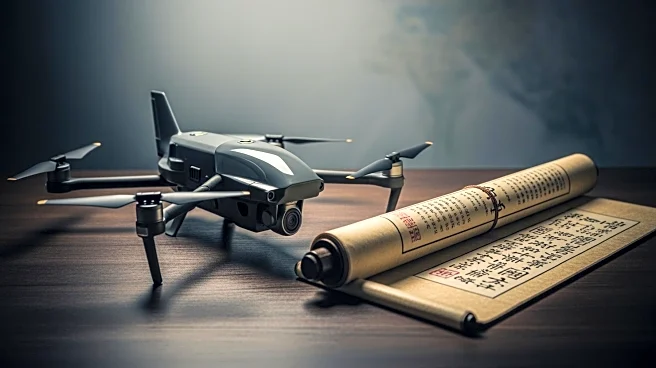What's Happening?
China has issued a warning to President Trump following the approval of a U.S. arms sale to Taiwan, which Beijing claims infringes on its sovereignty. The sale includes fighter jet and aircraft parts valued
at $330 million, intended to enhance Taiwan's defense capabilities. China's Foreign Ministry has expressed strong dissatisfaction, stating that the sale violates diplomatic agreements and sends a negative signal to separatist forces in Taiwan. The U.S. maintains unofficial ties with Taiwan and is legally bound to provide it with defense means, despite formal diplomatic relations with Beijing.
Why It's Important?
The arms sale to Taiwan is a significant development in U.S.-China relations, as Taiwan remains a contentious issue between the two nations. China's strong opposition highlights the geopolitical tensions surrounding Taiwan, which is considered a potential flashpoint for conflict. The sale may impact diplomatic relations and influence regional security dynamics, with potential repercussions for international trade and military alliances.
What's Next?
President Trump is scheduled to visit China next year, which may provide an opportunity for further diplomatic discussions on Taiwan and other bilateral issues. The U.S. and China will likely continue to navigate complex negotiations, balancing economic interests with security concerns. The situation may prompt reactions from other regional stakeholders, including Japan and South Korea.
Beyond the Headlines
The arms sale underscores the strategic importance of Taiwan in U.S.-China relations and raises questions about the balance of power in the Asia-Pacific region. It highlights the challenges of maintaining peace and stability in a region marked by historical tensions and competing interests.









